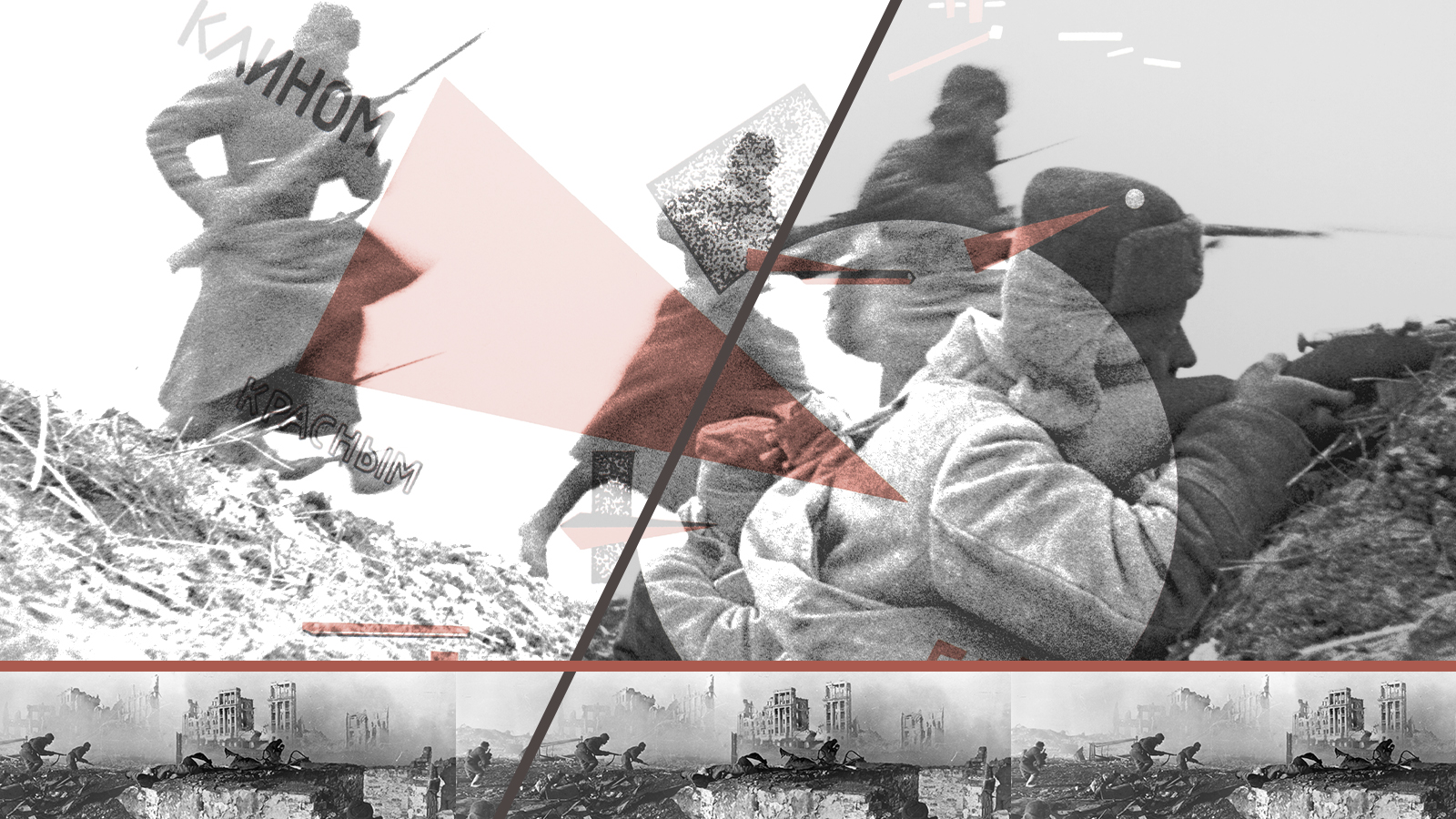Russia repeats history with its war crimes in Ukraine


A free daily email with the biggest news stories of the day – and the best features from TheWeek.com
You are now subscribed
Your newsletter sign-up was successful
The scenes in the Kyiv suburbs are devastating: masses of bodies piled in shallow graves; people found tortured and killed — their "crime" unclear — and reports of widespread rape.
Russian President Vladimir Putin "is brutal, and what's happening in Bucha is outrageous and everyone's seen it," President Biden told reporters after seeing images from the area. "I think it is a war crime ... He should be held accountable."
If history is a guide, these attacks on civilians by the Russian military in Ukraine may be only the beginning of something much, much worse — at least in scale. Few countries are innocent of war crimes, but Russia's military stands out in its record of atrocities and for how personal they are.
The Week
Escape your echo chamber. Get the facts behind the news, plus analysis from multiple perspectives.

Sign up for The Week's Free Newsletters
From our morning news briefing to a weekly Good News Newsletter, get the best of The Week delivered directly to your inbox.
From our morning news briefing to a weekly Good News Newsletter, get the best of The Week delivered directly to your inbox.
You don't have to go back to the Middle Ages to find evidence of that barbarism. At the end of World War II and soon after, the Soviet Red Army is believed to have raped as many as 2 million German women and unknown numbers of men and children.
If that history were included in Russian textbooks, it might be framed as payback for the estimated 27 million Russian deaths, more than half of them civilians, during that war. But while thirst for revenge for Nazi war crimes and genocide is understandable, those rapes remain an inexcusable part of Russian military history.
And it didn't end 70 years ago. In the Kremlin's Chechen war, which began in 1996 and was ended by Putin eight years later, there were widespread reports of rape, arson, torture, and other crimes by Russian soldiers, as I wrote previously here at The Week. Estimates of civilian deaths there range up to 250,000, and reports of Russian forces intentionally targeting civilians, and even first responders and other rescuers, also followed Russia's intervention in Syria, beginning in 2016.
Russia isn't unique here — witness the fact that 8 percent of men living in what once was the Mongolian Empire have the same Y-chromosome. That was hundreds of years ago, though, and the norms and rules of war have changed. But the devastation around Kyiv is a horrific reminder the facts of war remain the same.
A free daily email with the biggest news stories of the day – and the best features from TheWeek.com
Jason Fields is a writer, editor, podcaster, and photographer who has worked at Reuters, The New York Times, The Associated Press, and The Washington Post. He hosts the Angry Planet podcast and is the author of the historical mystery "Death in Twilight."
-
 Local elections 2026: where are they and who is expected to win?
Local elections 2026: where are they and who is expected to win?The Explainer Labour is braced for heavy losses and U-turn on postponing some council elections hasn’t helped the party’s prospects
-
 6 of the world’s most accessible destinations
6 of the world’s most accessible destinationsThe Week Recommends Experience all of Berlin, Singapore and Sydney
-
 How the FCC’s ‘equal time’ rule works
How the FCC’s ‘equal time’ rule worksIn the Spotlight The law is at the heart of the Colbert-CBS conflict
-
 What is ‘Arctic Sentry’ and will it deter Russia and China?
What is ‘Arctic Sentry’ and will it deter Russia and China?Today’s Big Question Nato considers joint operation and intelligence sharing in Arctic region, in face of Trump’s threats to seize Greenland for ‘protection’
-
 What would a UK deployment to Ukraine look like?
What would a UK deployment to Ukraine look like?Today's Big Question Security agreement commits British and French forces in event of ceasefire
-
 Did Trump just end the US-Europe alliance?
Did Trump just end the US-Europe alliance?Today's Big Question New US national security policy drops ‘grenade’ on Europe and should serve as ‘the mother of all wake-up calls’
-
 Is conscription the answer to Europe’s security woes?
Is conscription the answer to Europe’s security woes?Today's Big Question How best to boost troop numbers to deal with Russian threat is ‘prompting fierce and soul-searching debates’
-
 Trump peace deal: an offer Zelenskyy can’t refuse?
Trump peace deal: an offer Zelenskyy can’t refuse?Today’s Big Question ‘Unpalatable’ US plan may strengthen embattled Ukrainian president at home
-
 Vladimir Putin’s ‘nuclear tsunami’ missile
Vladimir Putin’s ‘nuclear tsunami’ missileThe Explainer Russian president has boasted that there is no way to intercept the new weapon
-
 The Baltic ‘bog belt’ plan to protect Europe from Russia
The Baltic ‘bog belt’ plan to protect Europe from RussiaUnder the Radar Reviving lost wetland on Nato’s eastern flank would fuse ‘two European priorities that increasingly compete for attention and funding: defence and climate’
-
 How should Nato respond to Putin’s incursions?
How should Nato respond to Putin’s incursions?Today’s big question Russia has breached Nato airspace regularly this month, and nations are primed to respond
